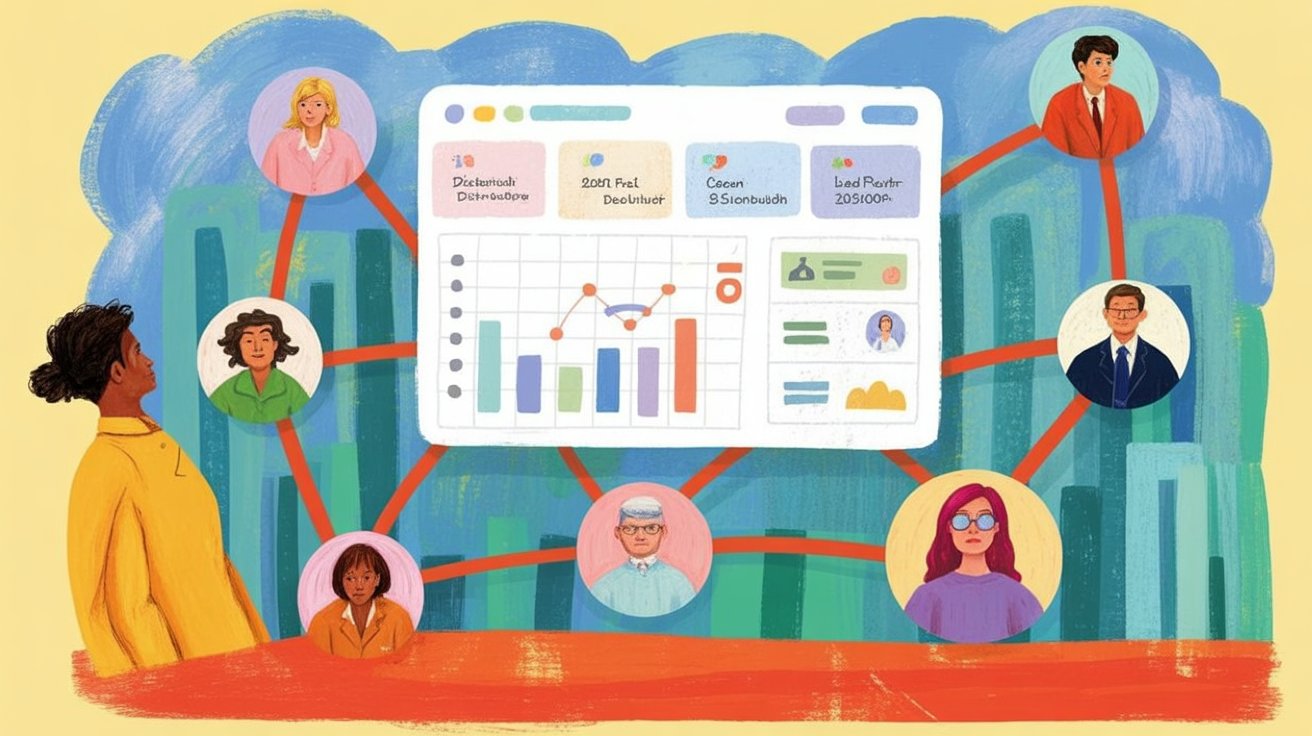

CRM for Network Marketing isn’t just about storing customer contacts — it’s about empowering distributors with the right data at the right time.
A specialized CRM helps network marketers track leads, manage downlines, automate follow-ups, and measure team performance all in one place.
Unlike generic CRM tools, network marketing CRMs are tailored for the unique structure of MLM, ensuring every interaction — from prospecting to retention — is streamlined and transparent, ultimately driving stronger sales and better distributor engagement.
Network marketing (MLM/direct selling) is relationship-first—and relationships are data.
A modern Customer Relationship Management (CRM) system turns messy contact lists, sticky-note follow-ups, and forgotten warm leads into a scalable, repeatable growth machine for individual distributors and their teams.
Below I’ll explain why CRM matters for network marketing, back it with market evidence and benchmarks, outline practical ways distributors use CRM, and highlight the newest trends (AI, mobile, compliance) that will shape distributor success in 2025 and beyond.
The business case in one sentence: Adopting a CRM is one of the highest-leverage moves a distributor can make: it improves lead follow-up, increases conversion rates, shortens sales cycles, and multiplies retention—delivering measurable ROI.
Tech.co
The CRM sector is large and growing rapidly—the market value was reported to be around the tens of billions and is expanding at double-digit rates as companies invest in automation, analytics, and AI-driven features.
This investment surge reflects proven returns: independent analyses show CRM delivers multiple dollars back for every dollar spent and measurable lifts in sales, productivity, and forecast accuracy.
At the same time, direct selling (the umbrella that includes network marketing) remains a sizeable global channel—reporting industry-wide sales in the tens of billions annually—so the opportunity for CRM-driven efficiency gains across thousands of distributor teams is real.
Here are the metric-level benefits distributors and small teams can expect when they adopt a proper CRM strategy:
A distributor doesn’t need a giant enterprise setup—these are the high-impact CRM functions to adopt now:

1. Why is CRM software important in network marketing?
CRM software is critical in MLM because it helps distributors organize customer data, follow up automatically, and manage teams efficiently. The best MLM CRM software strengthens customer relationships, boosts conversions, and drives long-term distributor growth.
2. How does MLM CRM software increase distributor sales?
By using MLM CRM software, distributors can prioritize hot leads, track buying behavior, and automate engagement campaigns. Reports show CRM adoption can increase sales by up to 29% while delivering a strong ROI for network marketing businesses.
3. What features should the best CRM for network marketing have?
Key features include contact management, automated workflows, mobile CRM apps, subscription and payment integration, and advanced analytics dashboards. These features allow distributors to scale faster and manage customer relationships more effectively.
4. Does CRM work on mobile for MLM distributors?
Yes. Mobile-enabled CRM software lets MLM distributors log leads, manage calls, and follow up instantly. Studies prove mobile CRM users are more likely to hit or exceed their sales quotas compared to non-users.
5. Is CRM for network marketing compliant with regulations?
It can be, if used with compliance-ready tools. A quality MLM CRM ensures GDPR and TCPA compliance by recording consent, honoring opt-outs, and protecting customer data. This minimizes risks for distributors and MLM companies.
6. What are the future trends in MLM CRM software?
Future CRM trends for MLM include AI-driven lead scoring, predictive analytics, mobile-first design, and seamless integration with autoships and billing. Data privacy and compliance features will also become more important for sustainable distributor growth.
Network marketing thrives on relationships—and CRM turns those relationships into organized, measurable, repeatable growth. The proof is in the numbers: CRM adoption is rising because it delivers clear ROI (multiple dollars returned per dollar spent), real sales lifts, and better retention—advantages that scale across individual reps and teams alike. For distributors who want predictable growth (not just hustle), CRM is no longer optional; it’s essential.
Sources & Further Reading (Selected)